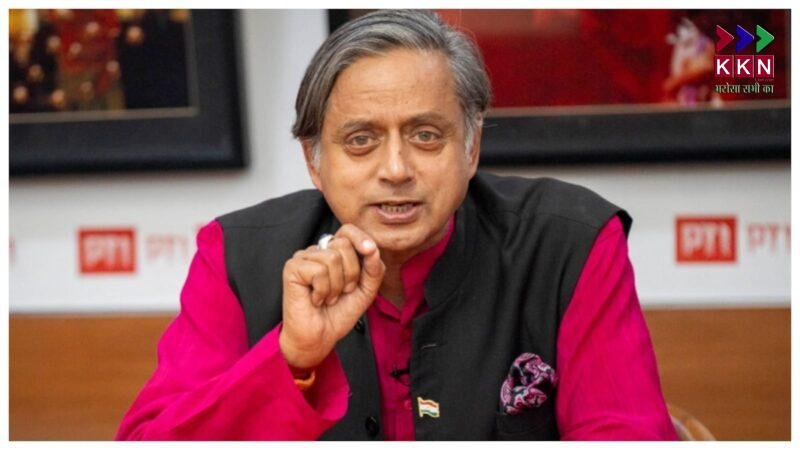Congress MP Shashi Tharoor, known for his candid views, has once again stirred political discourse by taking a firm stand against India’s Emergency period (1975–77), describing it as a “dark chapter” in the nation’s history. Through a recent opinion piece published in the Malayalam daily Deepika, Tharoor emphasized the timeless lessons from that era and cautioned against any attempt to undermine India’s democratic values.
Article Contents
What Tharoor Recalled About the Emergency
Tharoor revisited the turmoil that engulfed the nation between June 25, 1975, and March 21, 1977, during then-Prime Minister Indira Gandhi’s suspension of civil liberties. He emphasized that while the Emergency might have ended decades ago, its warnings remain starkly relevant today. According to him, the efforts to impose order through authoritarian rule eventually morphed into acts of oppression—an unsustainable approach for any democracy.
Forced Sterilisation: A Symbol of Coercion
One of the most chilling episodes Tharoor detailed was the forced sterilisation campaign led by Sanjay Gandhi, son of Indira Gandhi. Targets imposed on rural populations resulted in:
-
Aggressive family planning measures
-
Use of force or coercion
-
Mass evictions of slum dwellers in urban centers, often with little or no support afterward – many left homeless, struggling to rebuild lives
Tharoor described this as a cruel and unnecessary breach of civil rights, reinforcing the importance of respecting individual freedoms in a democracy.
“India Today Is Not the India of 1975”
While condemning the Emergency, Tharoor also acknowledged the country’s evolution. He wrote, “Today’s India is more confident, more mature, and politically stronger.” He underscored:
-
A vibrant democracy
-
An actively engaged media
-
A population increasingly protective of civil liberties
However, he stressed that the Emergency’s lessons shouldn’t be forgotten, given the recent trends toward centralisation and suppression of dissent.
An Alert to Those in Power
Tharoor warned that unchecked power—often rationalised in the name of national security or stability—is a constant threat to democracy. He urged those in office and guardians of constitutional values to remain vigilant against:
-
Centralisation of authority
-
Suppression of dissenting voices
-
Erosion of constitutional checks and balances
He reminded readers: “The Emergency serves as an unambiguous warning… defenders of democracy must always be on guard.”
Why This Commentary Matters Today
Tharoor’s reflections come amid growing concerns over:
-
Increasing control over press and institutions
-
Expanded surveillance powers
-
Laws that appear to penalize dissent
While India’s democracy remains intact, Tharoor’s warning serves as a timely op-ed for citizens to remain aware and informed.
Breaking Down the Core Message
-
Condemnation of the Emergency: A period so fraught with suppression that it must always remind us how fragile freedom can be.
-
Reminder of Past Harms: From forced sterilisation to evictions, cruelties were legitimized as state policy.
-
Today’s Stronger Landscape: While India has progressed, no democracy is entirely foolproof.
-
Universal Warning: Power must always be checked, and guardians of democracy must defend freedom without compromise.
What This Means for India’s Democracy
Tharoor’s column underscores that democracy isn’t just about elections; it’s about:
-
Preserving dissent
-
Maintaining freedom of speech
-
Ensuring constitutional safeguards are enforced
The Emergency reminds us how easily liberties can be compromised when power goes unchecked. His warning gives civic leaders, journalists, and citizens alike, enough cause to pause and reflect.
Shashi Tharoor: A Voice from Within
This is not the first time Tharoor has voiced such concerns. He has also praised certain policies of the current government, exhibiting a bold independence rare in Indian politics. Known for his eloquence and firm political beliefs, Tharoor bridges party lines while calling for ground-level accountability.
Timely Reminder on Democracy’s Value
India has come a long way since 1975—through:
-
A diversifying media ecosystem
-
Citizen activism on social and digital platforms
-
Political awareness and stronger judicial independence
Yet, as Tharoor maintains, these gains cannot be taken for granted. His commentary highlights the ongoing walkway between safeguarding freedom and falling back into authoritarian tendencies.
How This Conversation Shapes Policy
Tharoor’s public statement may inspire:
-
Journalistic investigations into institutional power
-
Parliamentary debates on personal freedoms
-
Activism against laws that could undermine civil liberties
In a fast-paced political environment, such voices of reason often stimulate constructive dialogue.
The Road Ahead for India’s Democracy
Tharoor concluded with a call: Learn from 1975, but build for 2025 and beyond. He urged policymakers and civil society to:
-
Ensure power decentralisation
-
Enhance transparency
-
Prioritize rights-based governance
Only then can India truly embody the democratic ideals it enshrined in its Constitution.




